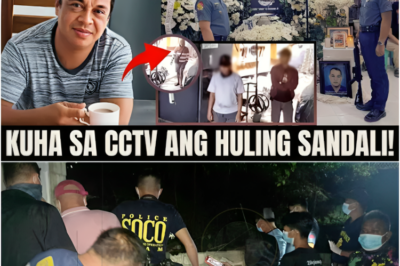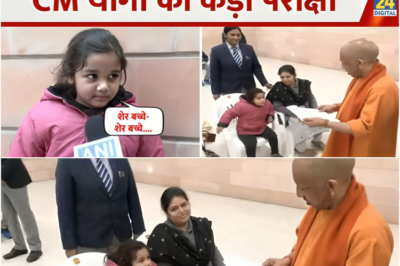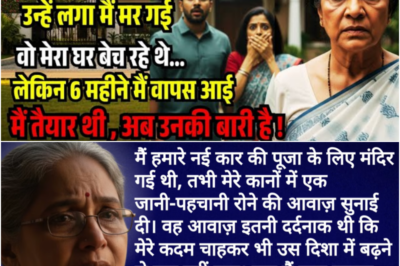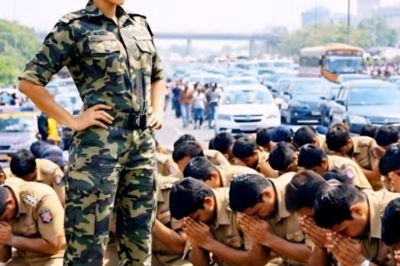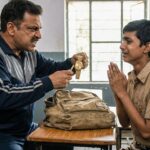Kapil Sharma Reacts on Live after Gun Shot on Him and Life Threat begging Safety for his Life!
.
.
Gunfire at Kapil Sharma’s Canada Café Sparks National Security Fears Over Alleged Khalistani Terror Link
In a chilling attack that has sent shockwaves across both Canada and India, a café recently opened by renowned Indian comedian Kapil Sharma in Canada was sprayed with bullets in the early hours of July 10. The violent act, believed to be linked to pro-Khalistani extremists, has raised alarm bells about growing security threats targeting South Asian businesses and personalities abroad.
According to law enforcement authorities, the attack took place at approximately 1:50 a.m. when unidentified gunmen opened fire at Café Kap’s, a new hospitality venture launched by Sharma. Located in the city of Surrey, British Columbia—a region with a large South Asian diaspora—the establishment suffered significant damage. Windows were shattered, parts of the property were wrecked, and gunshots echoed through the quiet night while several staff members were reportedly still inside.

Police Investigation Underway
Surrey Police confirmed that the attack was directed specifically at the café and not a random act of violence. A full-scale investigation has been launched, with authorities examining CCTV footage, forensic evidence from the scene, and social media posts that may be connected to the crime.
As of now, no arrests have been made and no suspects have been publicly identified. However, the police are not ruling out terrorism-related motives, especially after disturbing online posts began circulating shortly after the attack.
Disturbing Claims of Responsibility
Within hours of the incident, unverified yet widely shared posts on social media allegedly claimed responsibility for the shooting. These posts are believed to have come from individuals identifying themselves as Harjit Singh Ladi and Tufan Singh—names associated with the banned Khalistani extremist group Babbar Khalsa International (BKI). The posts claimed the attack was retaliation for an episode of The Kapil Sharma Show, in which jokes were allegedly made about the Nihang community’s traditional attire and customs.
The Nihangs, an armed Sikh warrior sect known for their distinctive blue robes and weaponry, are highly revered in certain religious circles. Any perceived mockery or disrespect toward their traditions can ignite severe backlash, particularly among fringe hardline elements.
The alleged connection between a comedic television episode and such a serious act of violence has reignited debates around freedom of expression, cultural sensitivities, and extremist ideologies using such issues as justification for targeted attacks.
Viral Video Raises Public Anxiety
A video purportedly showing masked gunmen firing rounds into the café has gone viral on social media, further inflaming public sentiment. In the video, the assailants are seen calmly approaching the premises before unleashing a hail of bullets at the establishment. While no injuries were reported, the psychological impact of such a visual is immense—especially for Indian-origin business owners and communities residing in Canada.
The attack and subsequent online propaganda have served to amplify fears of a resurgence in Khalistani terror networks, which had been relatively dormant in recent decades but appear to be gaining momentum again, particularly through digital platforms and international cells.
A Pattern of Escalation?
Local journalist Sameer Kaushal, who visited the scene shortly after the incident, described the damage as “extensive” and said this was “not an isolated case.” According to Kaushal, the attack fits a disturbing pattern of recent threats and violent acts directed at South Asian-owned businesses and prominent individuals in Vancouver and the Greater Toronto Area.
Just last month, a Punjabi grocery store in Brampton was defaced with pro-Khalistani graffiti, and earlier this year, several Hindu temples were vandalized with similar extremist messaging. While these acts of vandalism were initially viewed as scattered hate crimes, the scale and coordination evident in the attack on Café Kap’s point to a more organized effort, potentially tied to international terror networks.
Political Repercussions in Canada
The incident has created a political firestorm in Canada. Prime Minister Justin Trudeau, already under scrutiny for his stance on foreign interference and national security, is now being pressed to explain what actions his government is taking to curb the apparent rise of extremism linked to separatist movements. Critics argue that Canada’s commitment to multiculturalism must not come at the expense of public safety.

Several members of the Indian-Canadian community have voiced concerns that Khalistani sympathizers are operating with impunity under the guise of political activism. “We are law-abiding citizens who came to Canada to live in peace,” said Rajbir Singh, a local business owner. “But now we are afraid. If someone as high-profile as Kapil Sharma can be targeted, what about us?”
The Indian government has previously criticized Canada for what it perceives as a lenient approach to Khalistani separatist elements. In 2023, tensions between the two countries flared after Indian officials accused Canada of harboring extremists. This latest attack may further strain bilateral relations.
Sharma’s Silence Speaks Volumes
As of now, Kapil Sharma has not made any public statement about the attack. Known for his lighthearted humor and massive fan base across India and the global diaspora, Sharma’s foray into the Canadian hospitality sector was seen as a personal and professional milestone.
His silence is being interpreted in various ways—some see it as a wise decision to avoid inflaming tensions, while others feel he should speak out against terrorism and express solidarity with victims of hate crimes.
Close associates say Sharma is “shaken but safe” and is cooperating with authorities in their investigation. The café remains closed until further notice.
Broader Implications: A Wake-Up Call?
Beyond the immediate shock and outrage, the attack on Café Kap’s serves as a stark reminder of the transnational nature of extremism. As countries like Canada continue to welcome immigrants from around the world, including politically and culturally diverse regions like Punjab, the challenge lies in maintaining social harmony without allowing radical ideologies to take root.
Experts believe that social media has played a pivotal role in the reorganization and mobilization of fringe groups like BKI. “What we’re seeing is not just ideological messaging but a tactical use of online platforms for recruitment, propaganda, and even operational planning,” said Dr. Karan Mehta, a counter-terrorism analyst. “That changes the game.”
Mehta added that while Canada has a strong record of law enforcement and intelligence operations, it needs to adapt faster to these evolving threats.
The Road Ahead
As police continue their investigation, many questions remain unanswered. Who were the attackers? Are they local operatives or international agents? How deep is the Khalistani network’s reach in Canada? Most importantly, how can such attacks be prevented in the future?
While no definitive answers have emerged, one thing is clear: this was not just an attack on a business or a celebrity. It was a calculated message intended to instill fear, provoke unrest, and challenge the rule of law.
For now, Café Kap’s stands as a symbol of both aspiration and adversity—a place where humor met hatred, and where an entertainer’s dream collided with the harsh realities of global terrorism.
As the community grapples with the aftermath, the world watches closely. The events of July 10 may mark a turning point in how Canada addresses domestic extremism and protects those who contribute to its rich multicultural fabric.
PLAY VIDEO:
News
‼️VIRAL CASE ‼️ PULIS,P!NATAY!! KUHA SA CCTV! SAKA INILIBING SA SEPTIC TANK
‼️VIRAL CASE ‼️ PULIS,P!NATAY!! KUHA SA CCTV! SAKA INILIBING SA SEPTIC TANK . . Part 1: Ang Naitagong Lihim ng…
जिसे सब “जूते पॉलिश वाला” समझते थे… उसी ने बचा लिया 500 करोड़ का प्रोजेक्ट!
जिसे सब “जूते पॉलिश वाला” समझते थे… उसी ने बचा लिया 500 करोड़ का प्रोजेक्ट! . . वह लड़का जो…
मुस्लिम बच्ची Anabi Ali ने पास की Yogi की कड़ी परीक्षा, CM ने अधिकारियों को दिया एडमिशन का आदेश
मुस्लिम बच्ची Anabi Ali ने पास की Yogi की कड़ी परीक्षा, CM ने अधिकारियों को दिया एडमिशन का आदेश ….
“जिंदा माँ को मरा बताकर बेटों ने बेच दिया घर | लेकिन माँ लौट आई… और फिर जो हुआ…
“जिंदा माँ को मरा बताकर बेटों ने बेच दिया घर | लेकिन माँ लौट आई… और फिर जो हुआ… ….
फटी शर्ट में नौकरी मांगने आया लड़का… मालिक लड़की ने जो किया, पूरी बिल्डिंग देखती रह गई 😱
फटी शर्ट में नौकरी मांगने आया लड़का… मालिक लड़की ने जो किया, पूरी बिल्डिंग देखती रह गई 😱 हुनर की…
“एक फौजी लड़की ने पूरे पुलिस सिस्टम को घुटनों पर क्यों बैठा दिया!”
“एक फौजी लड़की ने पूरे पुलिस सिस्टम को घुटनों पर क्यों बैठा दिया!” . . वर्दी का मान: एक फौजी…
End of content
No more pages to load

